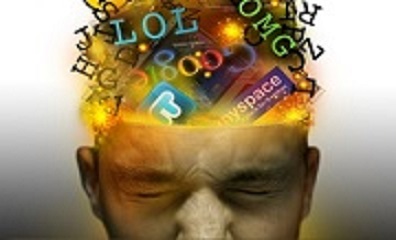

Today's technology makes it so easy for us to find out information such as what started World War 1, who invented penicillin or who is Kim Karhashian's new husband.
But does having this information make us smarter, make us wiser, or even make us mentally better? No.
Just because information is readily available doesn't make us understand the information more. It makes us more like following a cooking recipe, rather than imagining, visualising or making the recipe itself and learning from the experience.

Information overload, having too much information fed to us by the internet (news, facebook, emails, etc), can come to the detriment of short-term memory retention, and once our “Working Memory” is full, the efficiency and quality of mental work begins to decline (Ericson, 2013). This is a common problem when researching for topics and you get bombarded with Google searches, News Feed, Personal Blogs and Wikipedia data that you can't even type a complete sentence.
And there is also the aspect of how the brain process information effectively with the constant flux of information in the internet. According to cognitive neuroscientists, Marryanne Wolf, humans seem to be developing digital brains with new circuits for skimming through the torrent of information online at the expense of traditional deep reading circuitry (Pickens 2014). Our brains compensate from the constant bombardment of information by picking up key words rather than reading the entire message, essentially skimming through the information and potentially not taking in the needed information or worse, getting a false understanding.
As the old saying goes; “give a man fish and he will live for a day, teach a man to fish and he will live forever”, this statement is very apt in the digital age. We have to emphasise in educating people how to search, source, process, verify and communicate internet information effectively rather than just copy-pasting.